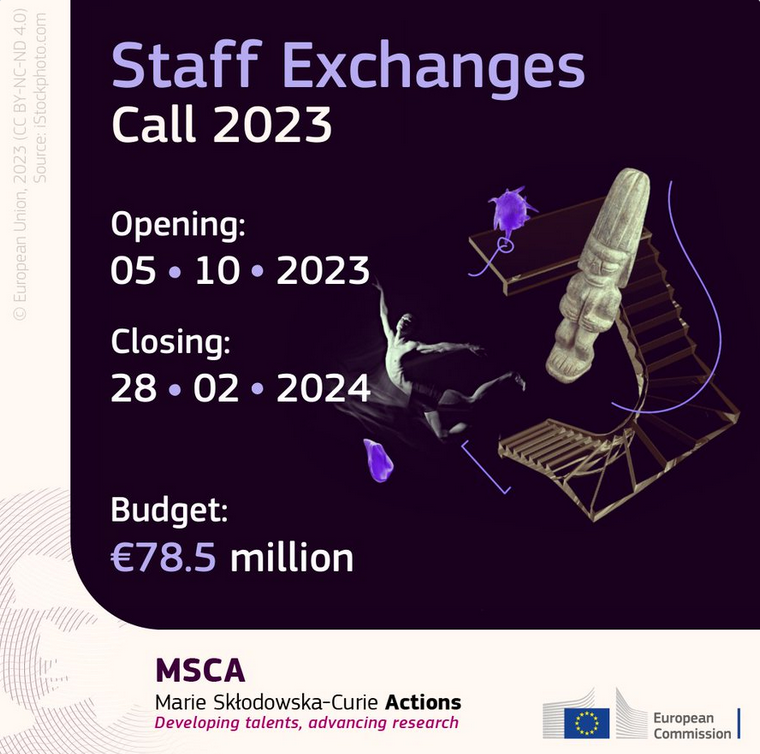MSCA Staff Exchanges involve organisations from the academic and non-academic sectors (including SMEs) from across the globe.
Support is provided for international, inter-sectoral and interdisciplinary mobility of R&I staff, leading to knowledge transfer between participating organisations.
Mobility through secondments
The organisations constituting the partnership contribute directly to the implementation of a joint R&I project by seconding and/or hosting eligible staff members.
Such a project must explore activities that can be based on previous work but should go beyond and generate or strengthen long-term collaborations.
Secondments must always take place between legal entities independent from each other.
Dimensions of mobility
MSCA Staff Exchanges can address three dimensions of mobility, which are
- inter-sectoral
- international
- interdisciplinary
Exchanges between organisations within EU Member States and Horizon Europe Associated Countries should mainly be inter-sectoral. However, same-sector exchanges are also possible under the condition that they are interdisciplinary. Interdisciplinarity is not required for same-sector exchanges with non-associated Third Countries.
Secondments between institutions established in non-associated Third Countries or within the same EU Member State or Horizon Europe Associated Country are not eligible.
The collaborative approach of MSCA Staff Exchanges should exploit complementary competences of the participating organisations and create synergies between them.
The secondments should be essential to achieve the joint project’s R&I activities.
The project should inter alia enable networking activities and the organisation of workshops and conferences, to facilitate sharing of knowledge and testing of innovative approaches for specific R&I topics.
Skills development
For participating staff members, the project should offer new skills acquisition and career development perspectives.
Participating organisations must ensure that the seconded staff are adequately mentored.
Indicative timeline
- 5 October 2023: Launch of the call for proposals
- 28 February 2024: Deadline for submitting proposals
- June/July 2024: Notification of call results to applicants (TBC)
- November 2024: Grant agreement signature for successful projects (TBC)
- November 2024: First EU-funded projects start (TBC)
Indicative budget
EUR 78.50 million
How to apply
Learn about the next steps to apply for funding under this call
Full call details
For full details of this call, visit the call page on the EU Funding & Tenders portal

